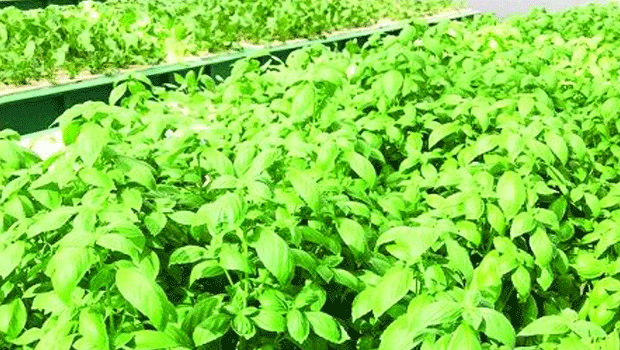
Muscat: Consumers in Oman should start adding more locally produced crops to their diet to increase the level of food security in the Sultanate.
Up to half of Oman’s population is dependent on the agriculture and fisheries industries, with a third of the economically active population directly employed in agriculture, according to Dr. Nadiya Al Saady, the Oman Animal and Plant Genetic Resources Centre’s (OAPGRC’s) executive director.
Healthier food
“Many Omanis like the idea of buying local food and that means fresher and healthier food, stronger local economies, direct contact with food producers and in some cases—but not always—lower carbon emission,” she said.
“By buying local, we are also encouraging Omani farmers to continue growing indigenous crops and conserve the diversity of plants in Oman. It is a win-win for everyone,” she explained.
“It is important to bring people closer to our local crops as we need to reduce our imports, which can be a burden to the economy,” Anand Venkataraman, the project manager an aquaponics-based organic farm in Oman.
Second best Arab state
Oman is the second best Arab state in terms of food security after Qatar, as it is currently ranked 26th internationally in the Global Food Security Index 2016 (GFSI) among 113 countries. The Sultanate scored 73.6 out of 100, jumping 0.9 points from last year.
However, 59.7 per cent of the country’s basic foodstuff is imported, according to Mustafa Al Riyami, coordination and follow-up specialist at the Public Authority for Stores and Food Reserves.
The basic foodstuffs are rice, sugar, lentils, tea, milk, cooking oil and wheat.
“This is a relatively good rate, given Oman’s harsh climate and limited fertile land,” he said.
Echoing Al Saady, Al Riyami encouraged Omanis to “think locally and purchase locally.”
This was also discussed during the second session of Science Café, which took place on October 26. The OAPGRC Science Café is a forum for the discussion of important and interesting scientific issues. The country can be more food secure if locals and expatriates changed their consumption habits and started eating more local products.
“When talking about agriculture and food, it is important we consider Oman’s demographics, we are a young country,” Al Saady explained, adding that millennials are more willing to pay for fresh and healthy food, and are willing to go to great lengths to find it.
Animal welfare
“Organic, free range, cruelty-free, locally grown, grass-fed, hormone-free—the millennials’ sensitivity to animal welfare, interest in locally grown produce, the environment, climate change and preference for all things natural also define this generation,” she added.
“Unlike previous generations, millennials now have the capability to use food as a method of personal storytelling and self-expression. A range of social media platforms allow them to instantly snap pictures of their savoury plates, follow their favourite food blogs, and check in at the trendiest, newest restaurants.”
Al Saady further said she believes this shift, in young Omanis, could change the marketplace forever as the power has moved from large mass-market companies and brands to the small guy selling locally produced food at the corner shop or online.
“Millennials are reshaping what we eat, how we eat, where we eat and how we grow our food.”